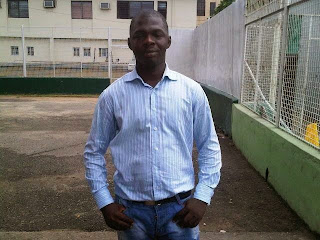Wednesday, March 18, 2015
APC, PDP Bicker Over Anti-gay Law As Italian Based Activist Urges FG To Reverse Anti-gay Law.
The issue of gay right is now a topic in Nigeria’s forth coming general elections following allegations by President Goodluck Jonathan of the Peoples Democratic Party (PDP) and his supporters against his main challenger, Gen. Muhammadu Buhari of the All Progressives Congress (APC) who he claimed assured western nations of his preparedness to support same sex marriage if he wins the elections on March 28.
President Jonathan, who spoke through his campaign organization, said General Buhari made the pledge to secure the support of the western countries to win the election.
Spokesperson of the President Goodluck Jonathan campaign organization, Mr. Femi Fani Kayode, said four western countries extracted a commitment from Gen. Buhari to support a legislation enabling same sex marriage.
Amid the flurry of apparently election fuelled allegations, the gay support claim by the Jonathan camp seemed the most serious. Still, Fani Kayode, reputed for making unsubstantiated allegations against political opponents, refused to give the names of the four countries he was referring to.
Gen. Buhari, seen by his supporters as a a no-nonsense former military leader, whose brief administration in 1980s waged campaigns against indiscipline and corruption, has not given any hint suggesting he would condone same-sex relationship already out-lawed in Nigeria.
In a related development, a Nigerian born gay activist who had to leave the country following stringent anti-gay laws in Nigeria has called on the federal government to revisit and reverse their policy on Lesbians, Gay, Bisexual and Transgender (LGBT) people in the country.
Emmanuel King Oduh, a 31-year old native of Isselu Uku in Delta State said due to what he described as the harsh legislatures against same-sex relationships in Nigeria, he had to flee for his life and as well as discontinue his education due to the stigmatization he was getting from both his family and society.
“I left Nigeria due to my homosexual tendencies, which, as is well known, can not be publicly manifested in Nigeria,” he said.
The federal government had in January 2014 signed into law a bill that criminalises same-sex relationships even against pressure from western countries. The Act stipulates penalties of up to 14 years in prison and bans gay marriages which it describes as amorous relationships as well as categorizing it as illegal any membership of gay rights groups or any kind of support that will promote LGBT activities in the country forcing so many gay people who have been living in underground existence to either leave the country or remain in the closet.
Before the law was signed into law, homosexual activities or sodomy was punishable by jail term but the new law now gives a maximum sentence of 14 years, a development that faced strong criticisms from western countries as well as renowned Nigerian authors like award winning Chimamanda Adichie calling the law “un-African and goes against the values of tolerance and live and let live that are part of many African cultures.”
Speaking to National Daily from Italy where he now resides, Oduh said that though he knew he was attracted to persons of same sex while he was a kid, he did not engage in any homosexaul relationship until he was admitted to study at Kaduna Polytechnic in Kaduna State where a man that helped him secure admission introduced him to active same sex relationship.
In 2005, I went to visit my brother in Kaduna from Lagos State where I grew up because I wanted to enrol into the Kaduna Polytechnic at that time. I was 21 then and my brother introduced me to his friend who promised to facilitate my enrolment. Along the line, he made advances at me and we started a sexual relationship. From then on, Evans, started introducing me to other gay individuals and at a point I slept with a high ranking lecturer in the institution who promised to make sure I secured the admission. My relationship with Evans lasted till 2006 when he left for the United States and by then, I had become familiar with so many people within the homosexual communities. When I finished my Diploma program, I returned to Lagos ,” he said.
He continued: “I continued having relationships with several partners until some people in my area at Ikeja, Lagos noticed that I was always in the midst of gay individuals and informed my family. The stigmatization I got was hell and was beaten, scolded and at times beaten up by my family members. I had to get some work and remained behind the closet though I secretly met my partners,” he said.
But with the new law passed in 2014, Oduh knew he needed to be careful as he was already a known homosexual in the area and with activities of a militant group, the Odua Peoples Congress (OPC), which had in the past administered jungle justice to some persons who committed crimes as minor as stealing being burnt to death, they made it clear to him that he was a target.
“I decided to leave Nigeria at that point and left after my friend who I met online helped arrange papers for me to join him in Europe. I have since been advocating for gays rights in Nigeria and pleading with the Nigeria government to reverse the harsh laws on people like us. Imagine the number of Nigerians that are going into exile from their country just because of their secual preferences. Right now, I have seeking to remain in Italy and cannot come back home because of the situation. I hope that they will have a rethink and allow LGBT persons to come back home and help in the rebuilding of our country,” he said.
Subscribe to:
Posts (Atom)




